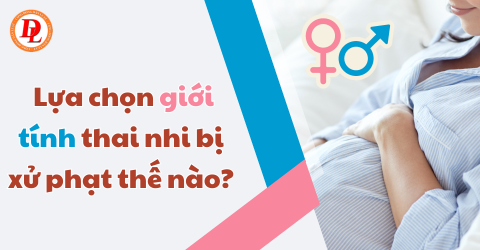Advertisements offering gender selection or foetal sex determination tests are easily found on the social media platform Facebook.

Numerous public groups have been established and operate openly, with membership ranging from a few thousand to approximately 300,000 people. Within these groups, many accounts act as decoys to lure or build trust with customers.
Upon contacting the account "Genhome NIPT-DNA-Gender XY Test," visitors were advised about a blood test service to determine the foetal sex. The cost is VND3.2 million for a foetus from six weeks of age, with 100 percent accuracy, sample collection nationwide, and same-day results. When asked if a pregnancy could be terminated if the foetal sex result was not as desired, the consultant guaranteed it could be arranged.
Dr. Nguyen Huu Trung, Head of Obstetrics and Gynecology at the University Medical Center HCMC (Facility 2), affirmed that the law absolutely prohibits any act of disclosing the foetal sex in any form, except for the purpose of screening for hereditary diseases with a medical indication. The practice of foetal sex selection is a deeply concerning reality that has persisted through many generations due to the notion of "needing a son to continue the family line" and gender stereotypes.
According to medical experts, this situation is often "facilitated" by a portion of medical staff who disclose the foetal sex. Furthermore, many facilities perform blood tests, NIPT (Non-Invasive Prenatal Testing), and indirectly determine foetal sex based on customer demand.
Alongside medical advancements, the active intervention to select the gender of a child is becoming increasingly common, leading to serious demographic consequences. The United Nations Population Fund (UNFPA) estimates that nearly 46,000 female foetuses in Vietnam are not born each year due to their gender.
The national report on civil registration and vital statistics for the 2021-2024 period shows that the sex ratio at birth in Vietnam is 109.8 boys per 100 girls. In 2024 alone, this ratio reached 110.7 boys per 100 girls significantly exceeding the natural balance. If this trend does not improve, by 2034, Vietnam will have a surplus of 1.5 million males in the 15-49 age range.
The recent draft of the Population Law includes additional regulations regarding policies and measures aimed at maintaining the replacement birth rate and minimizing gender imbalance at birth. Notably, it proposes the suspension of healthcare personnel who disclose or inform clients about the sex of the fetus, except in cases where there is a medical requirement.
During the meeting of the Standing Committee of the National Assembly on October 8, several opinions suggested adjusting the regulations to be more comprehensive and expanding the scope of enforcement to include all actions that influence the selection of fetal sex. It is anticipated that the Population Law project will be presented to the National Assembly for approval during the 10th session.
























